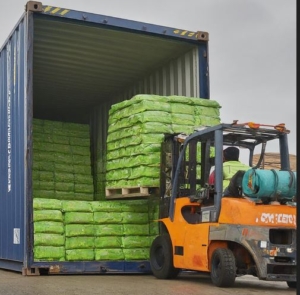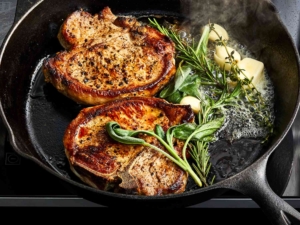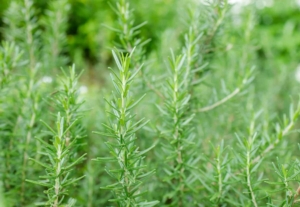Herb Importers Middle East: Making an Outstanding Selection in 2024 Qatar | Saudi Arabia | Kuwait | UAE | Bahrain | KSA
Herb Importers Middle East include distributors, wholesalers, and partnerships like those that Mulberry Growers has made in the market as we are a leading exporter of herbs to the Middle East. At Mulberry Growers, we understand that selecting the right herb importer is crucial to your business’s success in the Middle East.
Our guide is designed to help you navigate this decision-making process, ensuring you partner with trustworthy and efficient importers, i.e., “herb importers Middle East” who align with your quality standards and business goals. We care deeply about your success because we believe that strong, reliable partnerships drive mutual growth and excellence. By sharing our insights, we aim to support your business in thriving in the vibrant Middle Eastern market. Read this so that, together, we achieve exceptional results.

1. Essentials that Importers Must Consider Before Selecting Herb Importers Middle East
Government Policies
When selecting herb importers, businesses in the Middle East should consider trade agreements between their country and herb-exporting nations. These agreements can significantly influence the ease and cost of importing herbs. For instance, bilateral or multilateral trade agreements often reduce tariffs and simplify customs procedures, making the import process more efficient and cost-effective for herb importers Middle East. Understanding these agreements can help businesses negotiate better terms and ensure a steady supply of quality herbs. It is crucial to stay updated on any changes in trade policies that might impact import conditions or availability of specific herbs.
Import restrictions can determine which herbs can be brought into a country. Each country in the region has its own set of rules and limitations regarding herb imports, for example, herbs with certain psychoactive content are mostly prohibited in the Middle East. These restrictions can include bans on certain herbs, limits on quantities, or requirements for specific certifications. Familiarizing yourself with these restrictions is essential to avoid legal complications and ensure compliance with local regulations. Businesses should regularly consult with local trade authorities or import experts to navigate these restrictions effectively and maintain a smooth import process.
Legal Compliance
Importing herbs requires strict attention to documentation. Businesses dealing with herb importers Middle East must prepare and submit several key documents, including customs declarations, health certificates, and possibly phytosanitary certificates. These documents ensure that the herbs meet safety and quality standards for herb importers Middle East. Proper documentation helps in smooth customs clearance and prevents delays. It is essential to work with reliable herb importers Middle East who understand the documentation requirements and can manage this aspect efficiently. Ensuring all paperwork is complete and accurate helps avoid potential issues with customs authorities and facilitates a hassle-free import process.
Compliance with local legislation is also crucial for businesses importing herbs into the Middle East. Each country has specific laws and regulations governing the importation and distribution of herbal products. This includes adherence to safety standards, labeling requirements, and restrictions on certain herbs. Businesses must stay informed about local laws to ensure they meet all legal requirements. Consulting with legal experts or regulatory agencies can help navigate these regulations and ensure full compliance of herb importers Middle East. This proactive approach minimizes the risk of legal issues and helps maintain a good standing with local authorities.
2. Cultural Considerations in Herb Importation
Cultural Preferences
In the Middle East, traditional uses of herbs are deeply rooted in both medicine and cuisine. Many herbs are integral to local practices and recipes, making it important for businesses dealing with herb importers Middle East to identify and import herbs that align with these traditions. Herbs like saffron, cumin, and mint are highly valued for their historical and cultural significance. Understanding these traditional uses helps in selecting herbs that will be well-received by the market. Companies should consider how these herbs fit into local customs and preferences to better tailor their product offerings.


Addressing cultural sensitivities is crucial when importing herbs into the Middle East. Different cultures within the region may have specific taboos or preferences that impact herb sales. For example, certain herbs may be considered auspicious, while others might be avoided due to cultural beliefs. Being aware of these sensitivities helps in selecting herbs that are culturally acceptable and avoids potential issues. Engaging with local experts or conducting market research on areas that herb importers Middle East target can provide valuable insights into these cultural nuances, ensuring that the herb products are well-received and respectful of local traditions.
Market Adaptation
To successfully market herbs in the Middle East, businesses dealing with herb importers Middle East should adapt their products to fit local tastes and traditional practices. This might involve modifying the form of the herb, such as offering ground herbs instead of whole ones, or packaging them in a way that appeals to local consumers. Customizing products to meet local preferences can enhance their appeal and increase market acceptance among herb importers Middle East. Additionally, incorporating traditional recipes or usage instructions on packaging can make the herbs more relatable and attractive to consumers familiar with traditional uses.
Educating consumers about the benefits and uses of imported herbs is essential for market success. Many consumers may not be familiar with the properties or advantages of new or exotic herbs. Providing clear, accessible information through marketing materials, workshops, or product labels helps bridge this knowledge gap. Highlighting the health benefits, culinary uses, and cultural significance of the herbs can enhance their appeal and encourage their adoption. Effective consumer education fosters trust and helps herb importers Middle East build a loyal customer base, contributing to the overall success of herb importation efforts.
Supply Chain Management in Dealing with Herb Importers Middle East
Logistics Challenges
Transporting herbs across the diverse terrains of the Middle East presents unique logistical challenges. In the UAE and Saudi Arabia, where herb importers Middle East deal with both arid deserts and bustling urban centers, ensuring that herbs remain fresh during transit requires advanced temperature-controlled shipping solutions. In Bahrain and Kuwait, the challenge often revolves around maritime transport logistics due to their island or coastal nature. Similarly, in Qatar, where rapid urban expansion affects infrastructure, ensuring timely delivery amidst growing traffic congestion can be difficult. Addressing these issues involves a keen approach to route planning and transport technology to mitigate delays and quality deterioration.

The varying climates of the Middle East necessitate specialized storage solutions to preserve the quality of imported herbs obtained from herb importers Middle East. In the UAE and Qatar, where extreme heat can quickly degrade herb quality, climate-controlled warehousing is essential for herb importers Middle East. In Saudi Arabia, with its vast desert regions, warehouses need robust insulation and air conditioning to maintain optimal conditions. Bahrain and Kuwait also face challenges related to humidity and temperature control, requiring tailored storage systems to prevent spoilage. In regions with fluctuating weather, investing in advanced storage technologies is critical to maintaining herb freshness and extending shelf life. These are reasons why effective herb importers Middle East are critical.
Supply Chain Optimization
To optimize the supply chain for herbs in the Middle East, developing efficient transportation routes is crucial. In densely populated areas like the UAE and Qatar, traffic congestion can cause delays, making it important to use real-time traffic data for route planning. In Saudi Arabia and Bahrain, where long distances between cities can impact delivery times, establishing direct routes and leveraging regional distribution hubs can streamline operations. By utilizing advanced logistics software and local knowledge, businesses can minimize transit times and ensure herbs reach their destinations in peak condition.

Effective supplier coordination is key to maintaining the quality and timeliness of herb deliveries. In Kuwait and Qatar, establishing strong relationships with the best herb importers Middle East and having clear communication channels helps in managing supply schedules and quality control. In Saudi Arabia and the UAE, coordinating between international suppliers and local distributors can prevent delays and ensure compliance with local regulations. Implementing integrated supply chain management systems allows for real-time tracking and better coordination, ensuring that herbs are delivered as expected and meet the required quality standards.
Economic Impact of Herb Importation
Market Economics
Impact on Local Markets: Imported herbs have a significant impact on local herb markets across the Middle East. In the UAE and Saudi Arabia, the influx of imported herbs can lead to more competitive pricing and a wider variety of products, influencing local herb markets and potentially driving down prices. In Bahrain and Kuwait, imported herbs often fill gaps in local production, meeting demand for diverse herb varieties. This can affect local suppliers and market dynamics, requiring local businesses dealing with herb importers Middle East to adapt their strategies to stay competitive in the changing market landscape.
Economic Contributions: Herb importation brings substantial economic benefits to both exporting countries and local businesses in the Middle East. In Qatar and the UAE, importation supports local businesses by providing access to high-quality herbs that may not be produced locally. This stimulates growth in the local food and pharmaceutical industries, creating jobs and enhancing economic activity. Exporting countries benefit from increased trade revenues and expanded market access. Therefore, herb importation fosters economic ties and supports industry growth, benefiting all stakeholders involved in the supply chain.
Consumer Spending
Consumer price sensitivity plays a crucial role in herb purchasing habits across the Middle East. In the UAE and Qatar, where disposable incomes are relatively high, consumers may be less sensitive to price fluctuations, focusing more on quality and variety. Conversely, in Saudi Arabia and Bahrain, price sensitivity can influence buying decisions, with consumers opting for more affordable options when prices rise. Understanding these dynamics helps businesses dealing with herb importers Middle East adjust pricing strategies and promotions to cater to different market segments and maximize sales.
The fact that there is growth in herb consumption significantly boosts the economies of the Middle East. In Kuwait and Saudi Arabia, an increasing interest in health and wellness is driving higher demand for herbs, leading to market expansion. This trend results in new business opportunities and investment in the herb sector. Analyzing consumption patterns and growth projections enables businesses dealing with herb importers Middle East to plan and scale operations effectively, capturing market share and responding to evolving consumer preferences. This, in turn, contributes to a dynamic and thriving herb importation industry in the region.
Herbal Trends and Innovations
Emerging Trends
New Herb Varieties: The Middle Eastern market is currently experiencing a surge in interest for novel herb varieties. Consumers are increasingly seeking herbs that offer unique flavors, health benefits, and traditional uses reimagined for modern applications. Varieties such as moringa and ashwagandha are gaining traction due to their nutritional benefits and wide application. Moreover, exotic herbs like rosemary and sage are becoming popular due to their anti-inflammatory and antioxidant properties. Businesses looking to import herbs should stay updated on these trends to align their product offerings with consumer preferences and market demands.


Innovative Uses: Herbs are no longer confined to traditional culinary roles; their applications have expanded into diverse sectors such as cosmetics and pharmaceuticals. For instance, lavender and chamomile are increasingly used in skincare products for their calming effects, while peppermint and eucalyptus are popular in respiratory health products. Innovations in herbal applications can drive market growth, as consumers seek products that combine natural ingredients with modern benefits. Businesses dealing with herb importers Middle East should explore these innovative uses to diversify their product lines and cater to the evolving demands of the Middle Eastern market.
Market Research
Consumer Preferences: Understanding consumer preferences is crucial for businesses aiming to import herbs into the Middle East. Conducting thorough research on what consumers are looking for in herbal products—such as organic certification, traditional benefits, or novel uses—can guide product selection and marketing strategies. Preferences can vary significantly across different regions, making targeted research essential. Gathering insights into these preferences can help herb importers Middle East tailor their offerings and improve their market positioning.
Market Surveys: Conducting market surveys is an effective way to gauge interest in emerging herb trends and understand market dynamics. Surveys can reveal insights into consumer preferences, potential demand for new herb varieties, and the effectiveness of existing products. By surveying different regions of the Middle East, businesses can obtain a comprehensive view of the market landscape. These insights can inform strategic decisions and help businesses dealing with herb importers Middle East adapt their import strategies to align with regional market needs and trends.
Health and Safety Standards
Ensuring the safety and quality of imported herbs involves rigorous testing protocols. This includes checking for pesticide residues, contaminants, and verifying the overall safety of the herbs. Implementing these protocols is essential to meet the health and safety standards expected in the Middle Eastern market. By adhering to strict testing procedures, businesses can ensure that their products are safe for consumption and meet regulatory requirements. This commitment to quality can help build trust with consumers and establish a strong market presence.

Obtaining health and safety certifications specific to the Middle Eastern market is crucial for herb importers Middle East. Certifications such as ISO, HACCP, and organic certifications can help demonstrate a commitment to quality and safety. These certifications are often required for market entry and can enhance credibility among consumers and business partners. Mulberry Growers has experience in supplying the UAE, Bahrain, Qatar, Kuwait, and Saudi Arabia, and provides you guidelines on the appropriate certifications to ensure compliance with local regulations and increases the likelihood of successful market integration.
Consumer Safety
Accurate and informative labeling is essential for consumer safety and regulatory compliance. Labels that herb importers Middle East use should provide clear information on the herb’s origin, usage instructions, and any potential allergens or side effects. In the Middle Eastern market, adhering to local labeling regulations is critical to avoid legal issues and build consumer trust. Well-labeled products ensure that consumers make informed choices, which can enhance product acceptance and brand loyalty in most regions of the Middle East.
Developing effective recall procedures is an important aspect of consumer safety. In the event of a safety issue or contamination, having a clear and efficient recall process can help address the problem swiftly and mitigate potential risks. Businesses dealing with herb importers Middle East should establish protocols for notifying distributors, retailers, and consumers, and ensure that these procedures comply with local regulations in the Middle East. This preparedness can protect consumers, minimize damage to the brand, and maintain confidence in the safety and quality of imported herbs.

Market Entry Strategies
Partnerships and Ventures: Forming joint ventures with local firms is a strategic approach for entering the Middle Eastern market. These partnerships can provide valuable insights into regional market dynamics, regulatory requirements, and consumer preferences. By collaborating with established local businesses, herb importers Middle East can leverage existing networks and resources to streamline market entry and enhance their competitive edge. This strategy is particularly effective around the Middle East, where local expertise can significantly impact market success.
Distribution Agreements: Establishing distribution agreements with local companies is crucial for efficient market penetration. These agreements can help ensure that herbs reach the intended market segments effectively and promptly. By partnering with local distributors, businesses dealing with herb importers Middle East can benefit from established distribution channels and local market knowledge. This approach not only facilitates smoother operations but also helps in building a robust market presence in key regions
Targeted Advertising: Crafting marketing campaigns tailored to Middle Eastern audiences is essential for successful market entry. Understanding cultural nuances, preferences, and trends can help create advertising strategies that resonate with local consumers. Targeted advertising can increase brand visibility and attract the right customer segments. In diverse markets, localized marketing efforts can enhance engagement and drive sales, ensuring that promotional messages align with regional values and interests.
Promotional Strategies: Utilizing effective promotional strategies is key to introducing new herbs and building brand awareness in the Middle East. Promotions such as product launches, sampling events, and discounts can generate excitement and attract consumer interest. Additionally, leveraging digital marketing channels and social media platforms can amplify promotional efforts and reach a wider audience. Tailoring promotional strategies to the specific preferences and behaviors of consumers in regions like the UAE, Saudi Arabia, Bahrain, Kuwait, and Qatar can help establish a strong market presence and drive growth.
Consumer Behavior Analysis to Conduct when Sourcing from Herb Importers Middle East
Buying Patterns
Purchase Motivations
Understanding the motivations behind herb purchases like food flavoring is crucial for businesses aiming to tap into the Middle Eastern market. In cities like Dubai, Riyadh, and Manama, consumers often seek herbs for their health benefits, such as boosting immunity or aiding digestion. Others are drawn to herbs for their culinary uses, enhancing flavors in traditional dishes. By analyzing these motivations, businesses dealing with herb importers Middle East can tailor their offerings to meet specific consumer needs. For instance, in the UAE, health-conscious consumers may prefer organic or medicinal herbs, while in Bahrain, culinary herbs might be more popular.
Spending Habits
Consumer spending habits on herbs and herbal products vary widely across the Middle East. When doing business in Doha, Kuwait City, and Jeddah, spending patterns can indicate a preference for premium, high-quality herbs, driven by both health concerns and culinary interests. Studying these habits helps businesses identify price points and product ranges that align with consumer expectations. Traders should note that; while luxury herbal blends might find a market in affluent areas of Dubai, more budget-friendly options might cater to broader demographics in Riyadh or Manama. As such, tailoring pricing strategies to these spending habits can enhance market penetration.
Market Segmentation
Demographic Insights
Segmenting the herb market based on demographics involves analyzing age, gender, and income levels to better target specific consumer groups. In the UAE and Saudi Arabia, for instance, younger consumers might be more inclined towards herbs with health benefits, while older demographics could prefer traditional uses. Similarly, in Bahrain and Qatar, income levels can influence the demand for premium versus standard herbal products. By understanding these demographic factors, businesses dealing with herb importers Middle East can create targeted marketing campaigns and product offerings that resonate with distinct consumer segments.
Lifestyle Trends
Lifestyle trends play a significant role in herb consumption patterns across the Middle East. In cities such as Dubai, Kuwait City, and Manama, the growing trend towards healthy living and organic products has spiked interest in herbs known for their wellness benefits. This trend is further influenced by increasing awareness of natural remedies and sustainable living. Businesses need to align their product lines with these lifestyle trends, offering a range of herbs that cater to health-conscious and eco-friendly consumers. This makes organic and ethically sourced herbs appeal more to this demographic in urban centers.
Risk Management in Herb Importation
Contingency Planning
Developing robust contingency plans is essential for managing supply chain risks in herb importation. The Middle Eastern market, with its diverse regions such as Dubai, Riyadh, and Kuwait City, can face disruptions due to geopolitical tensions or logistical challenges. Businesses must prepare strategies to address potential delays or shortages, such as diversifying herb importers Middle East or establishing alternative transport routes. For instance, a well-planned contingency strategy might include building relationships with multiple herb importers Middle East across different countries to mitigate risks associated with any single source.
Risk Assessment
Effective risk assessment involves evaluating potential issues related to herb sourcing, transportation, and storage. Doha, Jeddah, and Manama are examples where businesses dealing with herb importers Middle East must consider factors such as the reliability of herb importers Middle East, the conditions of transport routes, and appropriate storage facilities to preserve herb quality. Risks such as contamination or spoilage can impact product integrity and customer satisfaction. Therefore, regularly assessing these risks and implementing measures like rigorous quality checks and secure storage solutions helps mitigate potential problems, ensuring consistent product quality and supply chain stability.
Regulatory Changes
Staying informed about regulatory changes is critical for businesses involved in herb importation. In the Middle East, regulations can frequently shift, affecting import procedures and compliance requirements. For instance, changes in Saudi Arabia’s or the UAE’s import regulations could impact the availability and cost of herbal products. Businesses should establish a system to monitor regulatory updates and adapt their practices accordingly, ensuring continuous compliance and minimizing disruptions in the supply chain. Engaging with local experts or legal advisors can also provide valuable insights into navigating these regulatory landscapes.
Economic Fluctuations
Economic fluctuations can significantly impact herb importation and pricing strategies. In major cities, shifts in economic conditions, such as changes in exchange rates or inflation, can affect import costs and consumer purchasing power. Businesses need to prepare for these fluctuations by incorporating flexible pricing strategies and exploring cost-saving measures. For example, locking in long-term contracts with herb importers Middle East or adjusting product offerings based on market conditions can help mitigate the effects of economic instability on import operations.
Talk to Us
We export basil, oregano, thyme, sage, rosemary, chives, and tarragon herbs to the Middle East and we also export similar herbs to Europe. At Mulberry Growers, we are also committed to empowering your business with the knowledge and tools needed to make informed decisions when selecting herb importers in the Middle East. We value the growth and success of our partners, as it reflects our own commitment to quality and excellence. By leveraging our expertise and insights, we believe you’ll find the right importers who will help you thrive in this dynamic market.

Welcome, you can connect with us from here:
- Our Email: commercial@mulberrygrowers.com
- Call/WhatsApp: +254 716 150 111 OR +254 748 897 749
- Website: www.mulberrygrowers.com
Thank you for trusting us to be a part of your journey. We look forward to growing together.